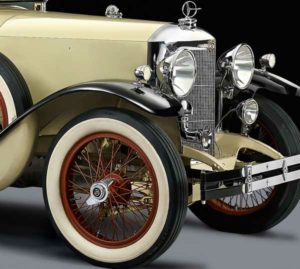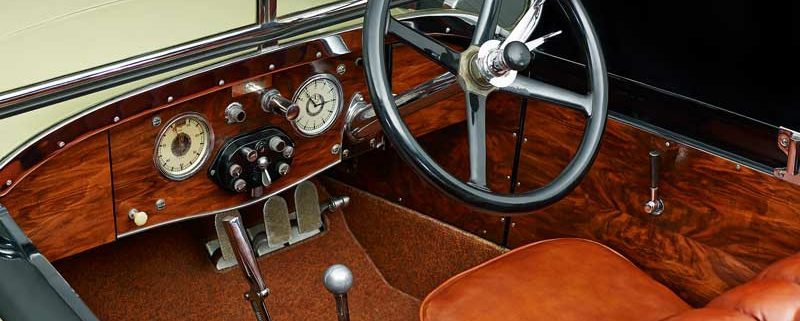How you can bring your vintage car through the winter break
In order for your vintage car to be fit in spring and to prevent any wear from standing still, its ‘hibernation’ has to be prepared correctly. Here are a few tips on how you can bring your vintage car through the winter break.
As a general rule: a dry garage is the ideal place for your precious car; preferably with a constant temperature and ventilation system to avoid the build-up of condensation. Before the Oldtimer is tucked in for winter, a thorough cleaning both inside and out is required. Here, it is imperative that the car is completely dried and any damp areas in the interior (e.g. the convertible top) are checked and removed immediately. With respect to a leather interior, it is important to ensure a gentle cleaning and that the leather is treated with leather care products (from specialist stores).
The underbody and wheel arches are particularly susceptible to rust damage; therefore, they require a thorough inspection and immediate action in case of cracks or flaking.
Tips and tricks for a successful vintage car ‘hibernation’ from a professional

When „hibernating“ without hoisting, increase the tyre pressure to 4.4 to 4.9 bar.
What else can you do? Max Lampelmaier, owner of the Autohaus Ford Lampelmaier in Mattsee and former Austrian state rally champion, maintains the vintage cars of the Ferdinand Porsche Erlebniswelten fahr(T)raum and has revealed his tips and tricks for a successful ‘hibernation’:
„The most important thing for me is the hoisting; that is just the best thing for chassis, shock absorbers and tyres. If hoisting is not possible, one should increase the tyre pressure to 4.4 to 4.9 bar. However, in this case, one should stick a reminder note to the windscreen so there will be no problems during the first drive in spring. In the case of faster vintage cars, the high tyre pressure also increases risk of skidding.
Do not engage the handbrake, but ensure that it is released during the winter break.
One should also follow the lubrication schedule in autumn, if available – i.e. check that the lubrication points are greased. Lubricate the rubber on the doors with deer tallow so they stay subtle. Please, do not use modern agents, as they will dry out in the garage. Deer tallow is an old medium that has been well proven over centuries.
Vintage car checklist for spring
The lights should also be checked in autumn and a checklist should be established for spring, so there won’t be any rude awakening when the 57a inspection for the sticker is due. An oil change should also be on the list for spring; please, don’t change the oil prior to the winter break.
Do not fuel up! There should be as little fuel as possible left and the carburettor should be drained throughout winter. If there is any fuel in the tank, add an additive to prevent carbonisation.“
We hope that we were able to help you with these tips! Then, there won’t be any unpleasant surprises in spring and nothing stands in your way for the first drive in sunshine … we would be very pleased if your vintage car drive were to lead you to the Oldtimer Museum fahr(T)raum at Mattsee near Salzburg!







The Diabelli Choir celebrates its 25th anniversary
/v Uncategorized @cs, VeranstaltungenThe Diabelli choir is a large mixed choir, pretty well known in Mattsee and beyond – many of the singers have been performing together for many years. The choir is also often booked for weddings and other celebrations. The Advent singing that takes place every year during the festive season, at the Ferdinand Porsche Erlebniswelt […]